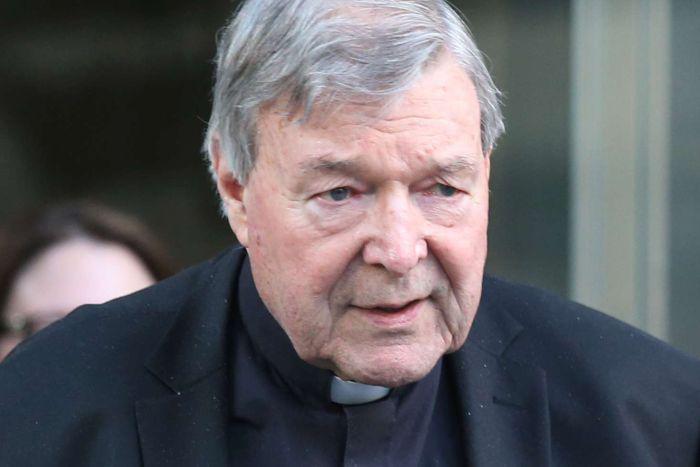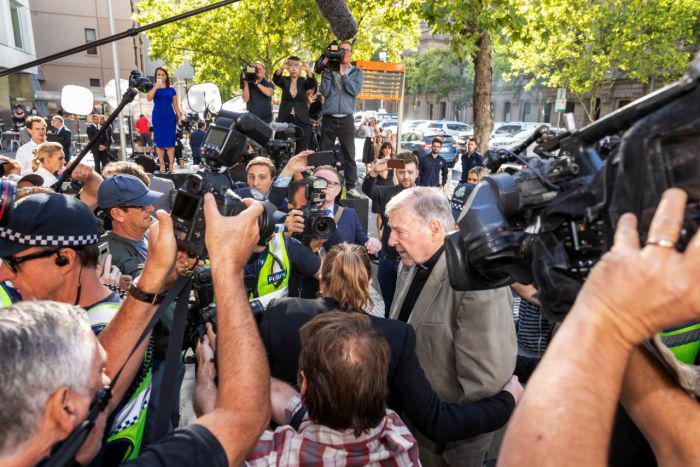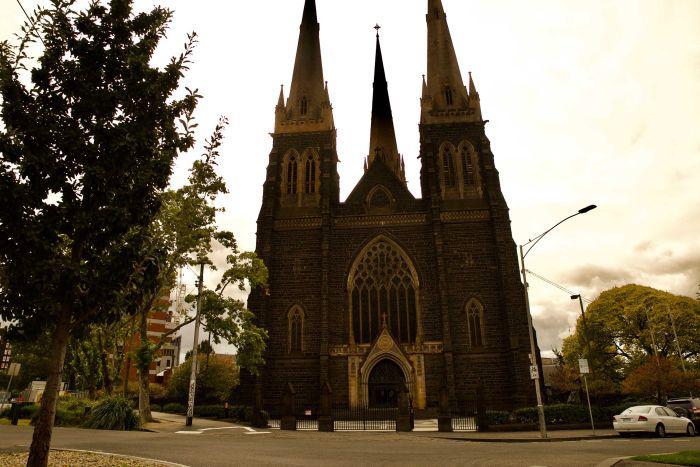|
George Pell High Court ruling on appeal against child sex abuse convictions to be handed down in a virtual vacuum
By Sarah Farnsworth And Elizabeth Byrne
It was never going to be a regular criminal court case by virtue of the man accused: Cardinal George Pell, who was a top advisor to the Pope when the allegations first surfaced that he had sexually abused two choirboys. Yet the finale of the five-year legal saga this morning — which could see George Pell released from jail — will be as unusual as it will be monumental. While at previous stages of the case, victims' advocates and supporters of the Cardinal have come together outside courthouses, social-distancing measures have effectively outlawed such gatherings. Instead, the High Court will deliver its decision on one of the most-watched cases in Australia's history in a virtual vacuum, with Chief Justice Susan Kiefel to hand down the full bench's ruling in an almost empty High Court registry in Brisbane. The judges are in their home states and are not travelling because of the coronavirus pandemic. The hearing will be over in minutes, with the court tweeting its decision, before publishing its decision online. It is a modern touch for a decision that is likely to have a lasting impact on one of the world's oldest institutions. George Pell will remain in Barwon Prison, where he will receive the news via his lawyers. Pell, 78, is serving a sentence of six years, with a non-parole period of three years and eight months, for the abuse of two teenaged choir boys at St Patrick's Cathedral in the 1990s, when he was the Archbishop of Melbourne. A jury found him guilty of sexual penetration of a child under 16, as well as four counts of committing an indecent act with, or in the presence, of a child. The divisive case has drawn international media giants like CNN and the BBC to Australian shores, with a large police presence guiding the Cardinal safely through throngs of camera crews and reporters, during other hearings. But travel bans and other measures to slow the spread of coronavirus mean there will be only a handful of people in the public gallery because of social distancing. The quick turnaround — with a decision being handed down less than a month after hearing oral arguments in Canberra — has fuelled speculation it will overturn Pell's convictions. However it is also possible the judges are in unanimous agreement to refuse special leave to appeal and throw the case out, or that they are in agreement that jury verdicts are sacrosanct. Given the judgment is being brought down so soon after the appeal hearing, perhaps the most likely outcome is that the court will announce its decision and give its reasons later. The last and arguably the most unlikely outcome could centre on the argument the Court of Appeal judges made an error of law when they watched the videotaped evidence of the complainant themselves. Over time, the High Court has developed law guiding appeal courts to support the jury's position in the trial process, setting down the rules that stipulate it is trial by jury and not trial by Court of Appeal. Another possibility is that the court will take a similar approach to the recent case which found Aboriginal Australians cannot be regarded as aliens under the constitution. In that case the court delivered a ruling on the general principle, and then ruled on whether it accepted the two appeals or not. The principle in this case could be to do with whether appeal courts should view video evidence or stick to the transcripts. The Victorian Court of Appeal judges had taken the unusual step of viewing video evidence of the victim and others in determining the appeal, which was scrutinised by the High Court judges in court. The question at the very centre of the High Court challenge was whether it was "open to a jury" to find Pell guilty beyond reasonable doubt on the testimony of more than 20 witnesses. The evidence included the sole surviving victim's account, and accounts from around twenty other witnesses about the routines and practices in the cathedral. Pell's legal team have argued it is highly improbable that the abuse occurred within the six-minute window presented by the prosecution, because George Pell would never have been alone with the boys in the priest sacristy. To overturn a jury verdict, the court must be convinced a serious miscarriage of justice has taken place. Whether the Cardinal's legal team has successfully argued a miscarriage of justice so grave has occurred will be made public on Tuesday.
Timeline of events in George Pell case:
|
.
Any original material on these pages is copyright © BishopAccountability.org 2004. Reproduce freely with attribution.


